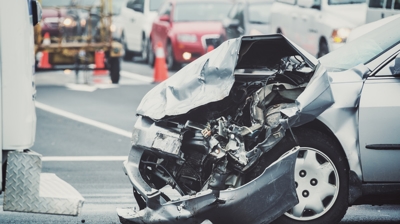

Our Results Make a Difference
Explore How We Have Helped Our Clients
-
$14 Million Dram Shop Liability
Our team obtained a $14 million dram shop verdict on behalf of a client who was injured due to negligence.
Civil vs. Criminal Lawsuits Against Drunk Drivers
Like every U.S. state, driving while intoxicated (DWI) is illegal in New Mexico. After causing a drunk driving accident, intoxicated drivers can be arrested and charged with a criminal offense. However, it’s imperative to understand that these proceedings are entirely separate from the civil proceedings of a personal injury lawsuit.
If you were wrongfully injured in a drunk driving accident, you may be wondering how criminal charges can affect your ability to pursue compensation from the intoxicated driver. Not only are criminal and civil proceedings carried out in separate courts, but they also entail different burdens of proof and carry different penalties.
When filing a civil lawsuit against a drunk driver, it’s critical to keep these important facts in mind:
A criminal conviction doesn’t guarantee compensation will be paid.
Criminal cases are separate and distinct from civil cases. Even if the drunk driver is found guilty in criminal court, this doesn't guarantee they'll be ordered to compensate victims in a civil case. It’s crucial to consult with a trusted drunk driving accident attorney who can file a civil lawsuit to recover full damages (such as physical, emotional, and financial damages).
If the driver is convicted in a criminal case, it may be easier to bring a civil lawsuit against them and recover damages. However, if the driver is not convicted in criminal court, this doesn't mean the driver can't be liable for damages. No matter your situation, seeking sound counsel is vital to obtaining fair compensation after a drunk driving accident.
Civil lawsuits have a different standard of proof than criminal cases.
- In criminal cases, the prosecution bears the burden of proof. This means that the prosecutor is responsible for presenting concrete evidence of the defendant’s guilt—commonly simplified as “innocent until proven guilty.” In a criminal drunk driving case, the prosecution is responsible for proving the drunk driver committed a DWI “beyond a reasonable doubt”—a higher standard of proof than civil proceedings.
- In a civil lawsuit, the burden of proof lies with the plaintiff. As the victim, you are responsible for proving "by a preponderance of the evidence" (e.g., that it is more likely than not) that the drunk driver's negligence directly caused your injuries. This standard of proof in civil cases is lower than in criminal cases, meaning that regardless of the verdict in the criminal case, it’s still possible for victims to obtain favorable outcomes in a civil cases.
What Is Dram Shop Liability?
Dram shop laws are regulations that expand liability in drunk driving accidents by holding alcohol-serving establishments responsible for overserving inebriated individuals. The purpose of dram shop laws is to hold businesses accountable for any bodily injury or fatalities resulting from drunk driving accidents due to overserving patrons.
In New Mexico, dram shop laws apply to commercial establishments, such as bars, restaurants, and liquor stores, as well as social hosts who serve alcohol at private events. If an establishment or social host serves alcohol to an individual who later causes a drunk driving accident resulting in injuries, they may be held liable under dram shop liability laws.
How Can a Drunk Driving Accident Lawyer Help?






